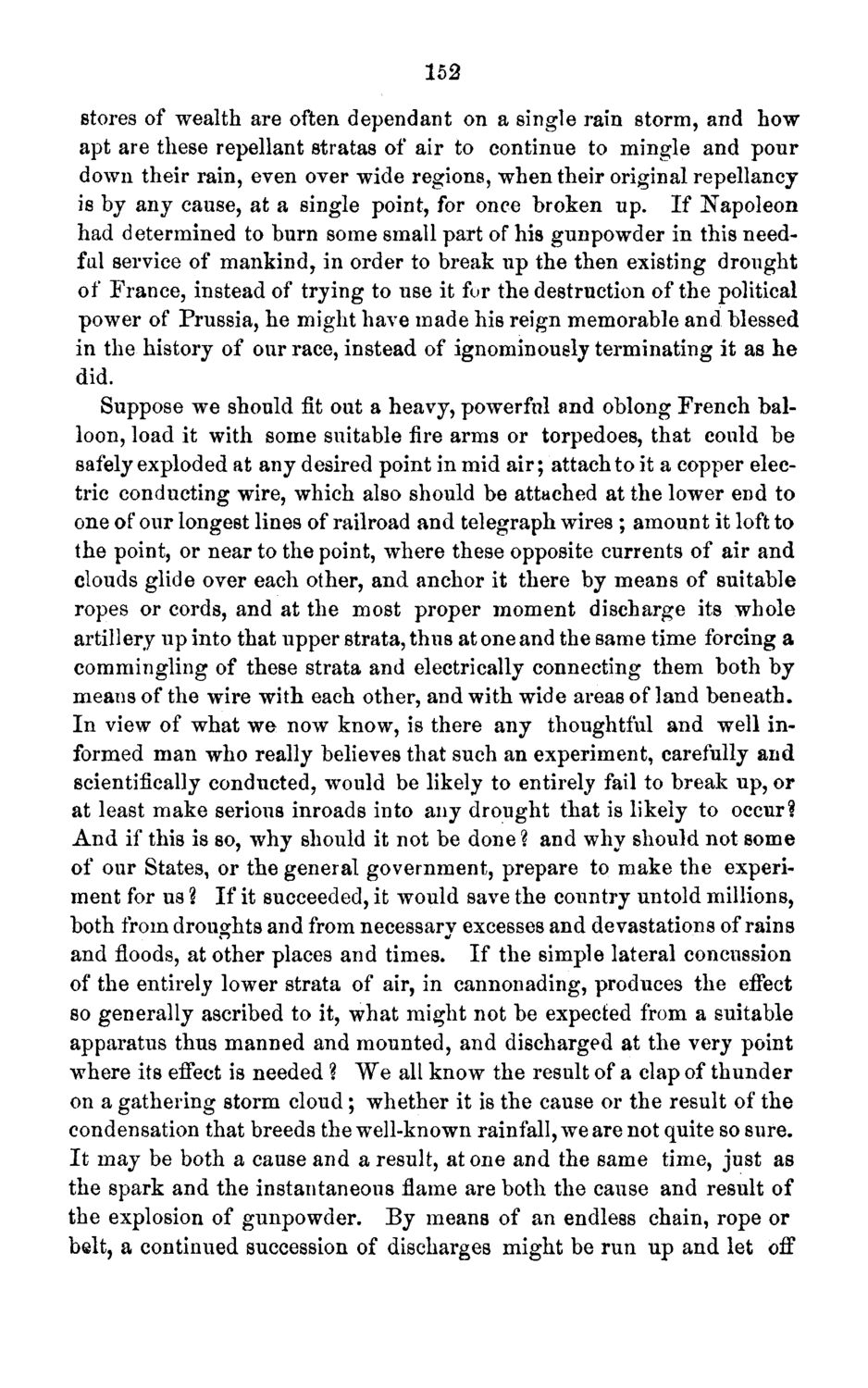| |
| |
Caption: Board of Trustees Minutes - 1871
This is a reduced-resolution page image for fast online browsing.

EXTRACTED TEXT FROM PAGE:
152 stores of wealth are often dependant on a single rain storm, and how apt are these repellant stratas of air to continue to mingle and pour down their rain, even over wide regions, when their original repellancy is by any cause, at a single point, for once broken up. If Napoleon had determined to burn some small part of his gunpowder in this needful service of mankind, in order to break up the then existing drought of France, instead of trying to use it fur the destruction of the political power of Prussia, he might have made his reign memorable and blessed in the history of our race, instead of ignominously terminating it as he did. Suppose we should fit out a heavy, powerful and oblong French balloon, load it with some suitable fire arms or torpedoes, that could be safely exploded at any desired point in mid air; attach to it a copper electric conducting wire, which also should be attached at the lower end to one of our longest lines of railroad and telegraph wires ; amount it loft to the point, or near to the point, where these opposite currents of air and clouds glide over each other, and anchor it there by means of suitable ropes or cords, and at the most proper moment discharge its whole artillery up into that upper strata, thus at one and the same time forcing a commingling of these strata and electrically connecting them both by means of the wire with each other, and with wide areas of land beneath. In view of what we now know, is there any thoughtful and well informed man who really believes that such an experiment, carefully and scientifically conducted, would be likely to entirely fail to break up, or at least make serious inroads into any drought that is likely to occur? And if this is so, why should it not be done % and why should not some of our States, or the general government, prepare to make the experiment for us ? If it succeeded, it would save the country untold millions, both from droughts and from necessary excesses and devastations of rains and floods, at other places and times. If the simple lateral concussion of the entirely lower strata of air, in cannonading, produces the effect so generally ascribed to it, what might not be expected from a suitable apparatus thus manned and mounted, and discharged at the very point where its effect is needed ? We all know the result of a clap of thunder on a gathering storm cloud; whether it is the cause or the result of the condensation that breeds the well-known rainfall, we are not quite so sure. I t may be both a cause and a result, atone and the same time, just as the spark and the instantaneous flame are both the cause and result of the explosion of gunpowder. By means of an endless chain, rope or belt, a continued succession of discharges might be run up and let off
| |